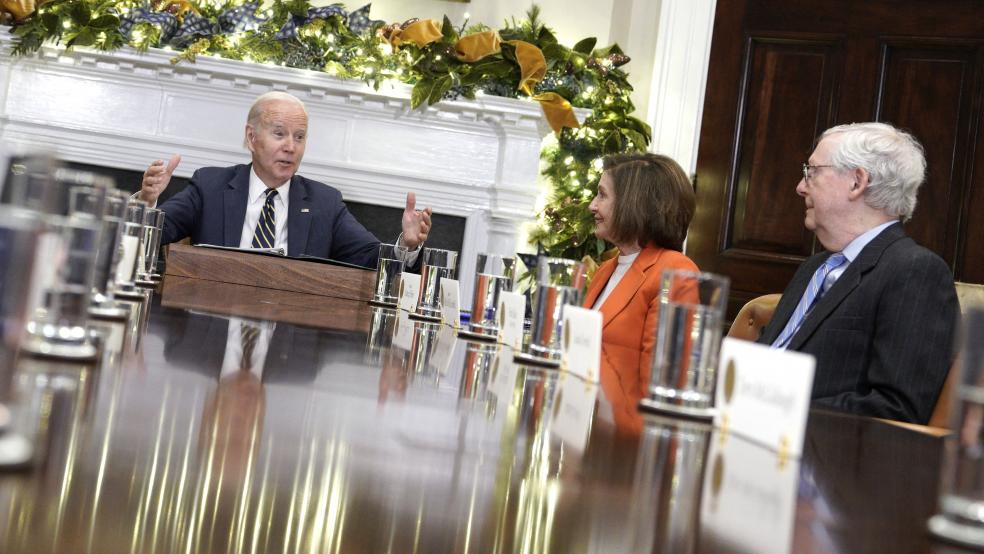President Joe Biden met with congressional leaders at the White House Tuesday to discuss the legislative agenda for the rest of the year — a list that suddenly has an urgent new item on it: averting a costly national rail strike.
"There's a lot to do, including resolving the train strike,” Biden said. “And Congress, I think, has to act to prevent it. It's not an easy call, but I think we have to do it. The economy is at risk.”
Congressional leaders of both parties said that they would work quickly to pass legislation to avert a strike, fearing that a work stoppage could break supply chains and wreak havoc on the economy, disrupting activity totaling billions of dollars a day and adding to inflationary pressures.
“Tomorrow morning we will have a bill on the floor,” House Speaker Nancy Pelosi (D-CA) told reporters after the White House meeting. “I don’t like going against the ability of unions to strike, but weighing the equities, we must avoid a strike. Jobs will be lost. Even union jobs will be lost. Water will not be safe. Product will not be going to market. We could lose 750,000 jobs, some of them union jobs. That must be avoided.”
How we got here: Rail employees have been pushing to win benefits that workers in many other sectors already enjoy, like paid sick leave and regular schedules. “Many have complained that extended time on the road and long stretches of on-call work make it difficult to see a doctor for an illness or injury, or to be present at family milestones like a child’s birthday,” The New York Times explains. As the Associated Press reported recently, the railroad operators have argued that, over decades of negotiations, the unions have agreed to forego paid sick leave in favor of higher wages and more generous short-term disability benefits
The White House helped broker a September agreement between the two sides that included a 24% wage increase over five years and one additional paid day off along with the ability to attend medical visits without being penalized. But four of the 12 railworker unions have rejected that deal, arguing it does not go far enough to address their concerns.
Congress now appears set to impose the September agreement via legislation. Freight rail workers can go on strike as of 12:01 a.m. on December 9, but Senate Majority Leader Chuck Schumer said Tuesday that the deadline for legislative action is sooner given that suppliers could halt shipments of some critical items earlier if they expect the standoff to go unresolved.
The bottom line: Time is running short, and while Sens. Bernie Sanders (I-VT) and Marco Rubio (RF-FL) have come out against imposing the current deal, Congress looks likely to pass a bill averting a potential rail strike and any major economic disruption. “Congress has voted to stop or end rail strikes in every prior instance going back to the 1960s, and it is difficult to envision a different outcome this time,” analysts at Goldman Sachs wrote in a note to clients.





